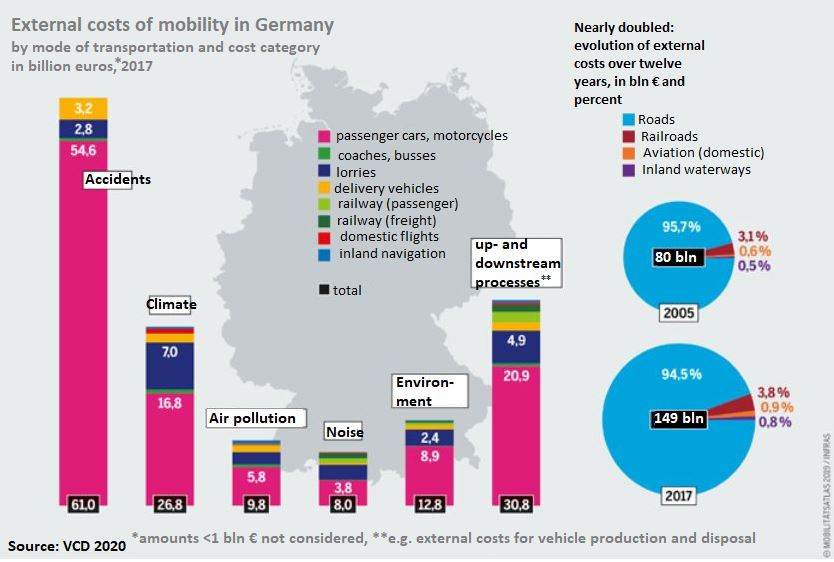External mobility costs for German society amount to 149 billion euros per year – NGO
Clean Energy Wire
The external costs caused by traffic and other mobility activities in Germany are in the range of 149 billion euros per year, transport NGO Verkehrsclub Deutschland (VCD) has stated in a factsheet. External costs are those outside of the direct costs involved when purchasing a car, gasoline, or paying vehicle tax. They include expenses that are typically not paid for by the person responsible but by society as a whole. 95 percent of Germany's external mobility costs are caused by lorry and passenger car road traffic, whereas railroad traffic accounts for less than four percent and domestic aviation to less than one percent, the VCD says. With nearly 13 cents per kilometre, however, aviation has the worst cost-distance ratio, compared to four cents for bus or train travel. According to the VCD, external mobility costs in the country nearly doubled between 2005 and 2017 and are mostly linked to accidents, climate effects and production and disposal of vehicles.
Transport emissions levels in Germany have remained almost unchanged since 1990, tarnishing the country's climate action record. The poor emissions reduction performance and the dieselgate scandal together with the associated air pollution problems have prompted calls for a comprehensive transition in the transport sector akin to the changes brought about with renewables in the energy industry, with the focus being put on a mass roll-out of electric vehicles, better railway and public transport infrastructure and making inner cities more attractive for cyclists and pedestrians.


